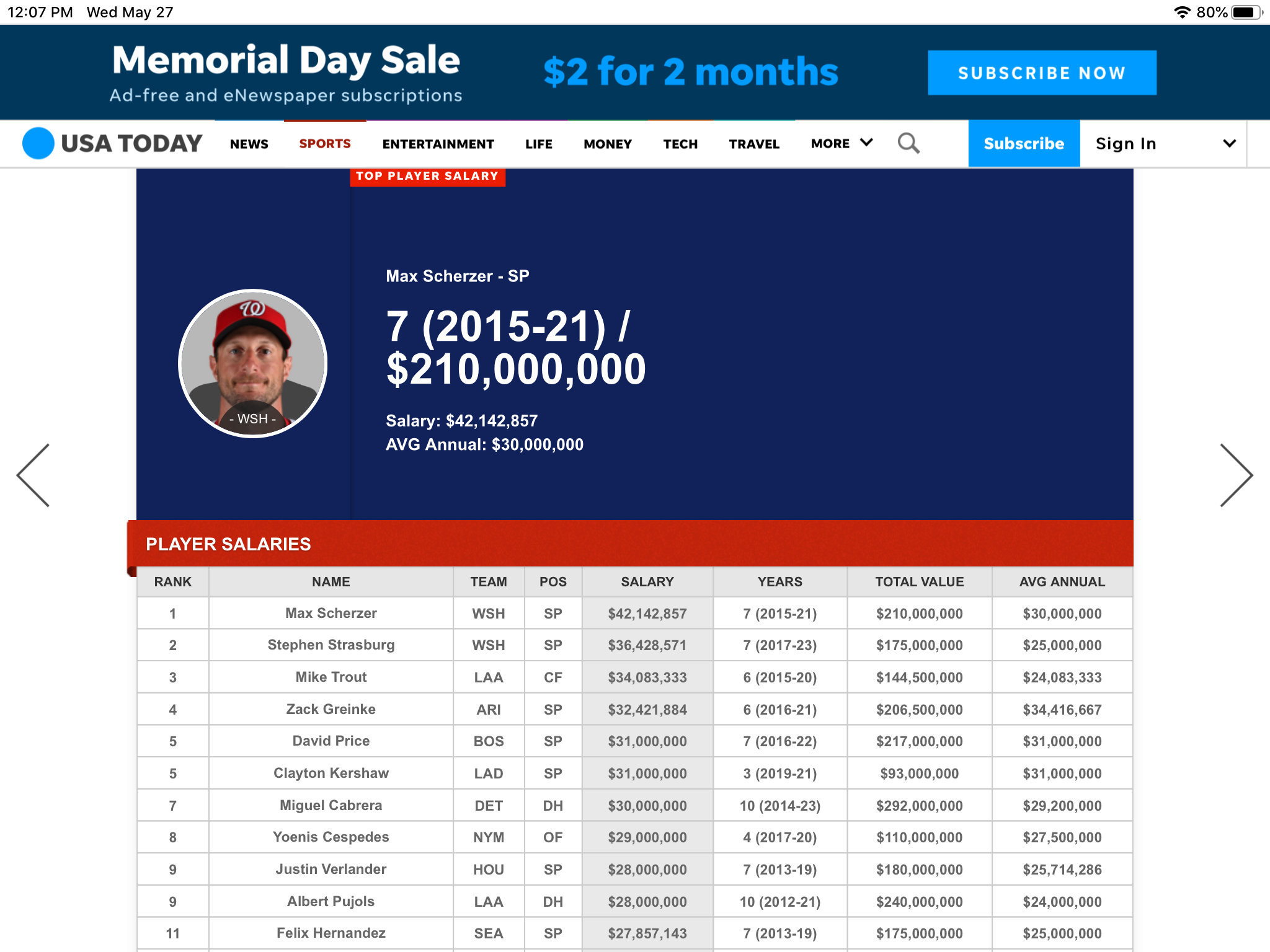It looks like a strike for baseball
In the battle between two groups of millionaires, most people are sitting on the bench.
Let’s play ball! Major League Baseball, the organization that had an agreement with the players, just threw a screwball at the union.

In March, the union had agreed to a prorated pay scale, meaning if only half the scheduled games were played, players would get half their salaries. That seemed reasonable and fair.
There are more than $4.25 billion in player salaries on the books, and revenues would be crippled without fans in the stands to buy tickets and hot dogs and beer.
Then MLB (a/k/a the bosses) had a brainstorm, which they brought to the Major League Baseball Players Association (a/k/a the workers) which found the idea all wet.
The bosses wanted the workers at the highest end of the pay scale to take additional cuts, which could shrink pay checks by more than 75%.
To explain this in different terms, the bosses want to go from a flat income tax to a progressive tax, where the people at the top pay the most.
The owners may be trying to foment dissension within the union — the elites versus the drudges — because a new contract has to be agreed upon next year. If bosses can destroy unity within the union, they have workers on the back foot.
It is not an unusual tactic.
Back when the Daily News and the Inquirer made maybe $100 million a year in Philly, the workers thought they deserved a share. The people who gathered the stories, wrote the headlines, edited the copy, took the pictures, laid out the pages, sold the ads, distributed the papers, mailed out the bills, printed the papers and drove the trucks, wanted a bigger piece of the action.
Management fought raises, of course, that’s what they do, but eventually agreed, even if it took a 23-day or 46-day strike to convince them. I was proud to be a leader of each strike and MLB may be looking at one.
At the newspapers, the bosses a couple of times proposed raises weighted toward the top, meaning the editorial department, which drew the largest salaries.
Here’s how unfair it was (don’t hold me to precise numbers, because this was a long time ago).
Editorial department was offered 10% raises, ad sales were shown 8%, circulation was to get 6%, and office staff 5%. The entire union had to vote on the proposed contract and the editorial department was mammoth, the largest unit by far.
Here’s an example of what the terms meant. Reporters would get $100 a week, sales people $80, circulation $60, office workers $50. Reporters might have been making $50,000, while office staff was making $25,000.
Under this proposal, the people who already had the most would receive the most. The bosses thought that was fair because the editorial department was the royalty.
The union refused, because unions don’t recognize royalty. It’s solidarity, not sovereignty. Unions recognize brothers and sisters, which is how they refer to one another.
Flip the pay scale, the union said. Give the lowest-paid the biggest raises and the best-paid the smallest percentage increase, which was still more actual bucks than the bottom got.
Mine was a real union. The ballplayers have a union in name only. Players have personal service contracts, and agents, who protect them more than the union can.
I see no indication that further cuts being taken by the guys at the top will result in another penny for the guys at the bottom.
So, Bryce Harper, tell ‘em to pound sand.



